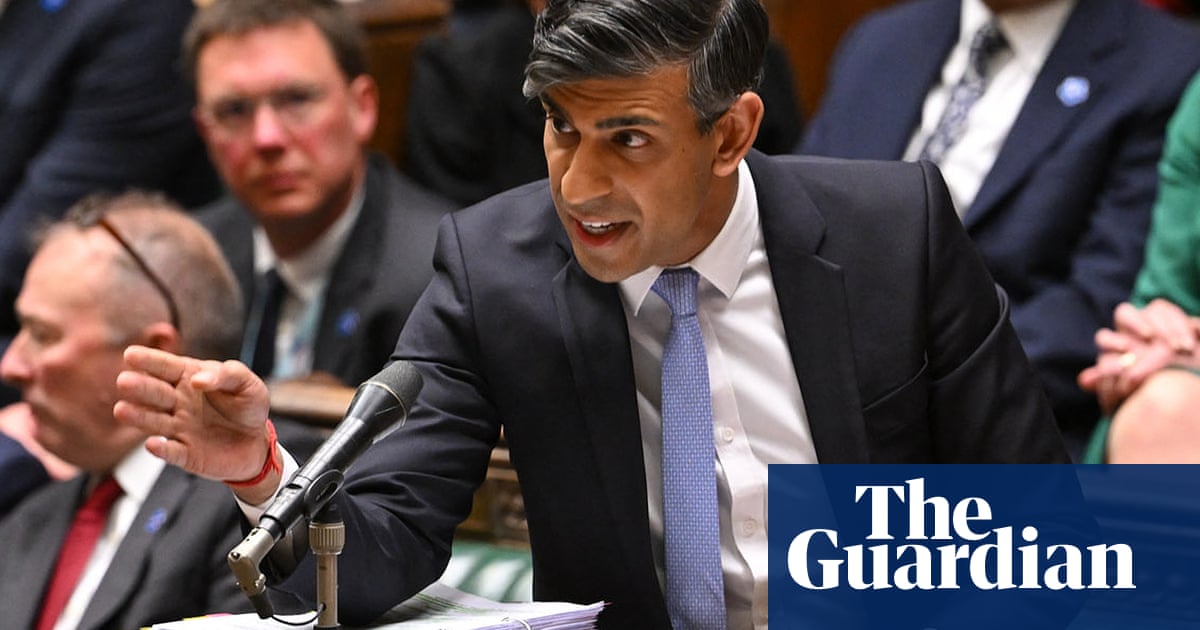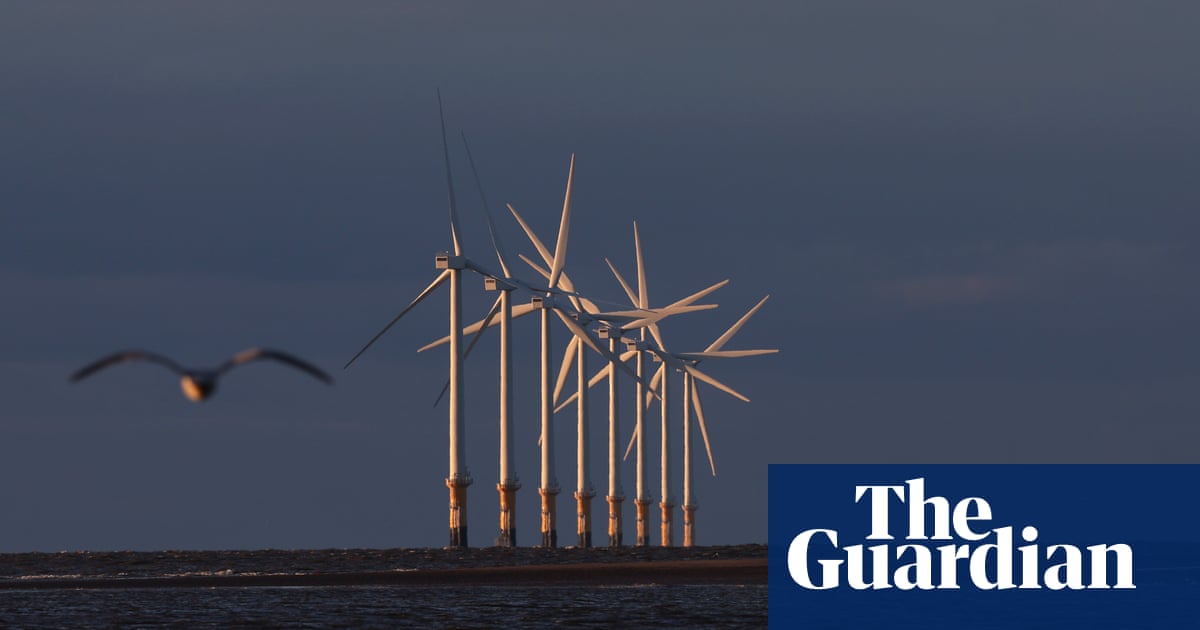
The government is failing to enact the policies needed to reach the UK’s net zero targets, its statutory advisers have said, in a damning progress report to parliament.
The Climate Change Committee (CCC) voiced fears that ministers may renege on the legally binding commitment to achieve net zero greenhouse gas emissions by 2050, noting “major policy failures” and “scant evidence of delivery”.
Lord Deben, the chair of the committee and a former Conservative environment secretary, said the government had set strong targets on cutting emissions but policy to achieve them was lacking. “The government has willed the ends, but not the means,” he said. “This report showed that present plans will not fulfil the commitments [to net zero].”
He said net zero policies were also the best way to reduce the soaring cost of living. Average household bills would be about £125 lower today if previous plans on green energy and energy efficiency had been followed through. “If you want to deal with the cost of living crisis, this is exactly what you need to do,” he said.
The greatest failure was the insulation policy. Britain’s homes are the draughtiest in western Europe, heating costs are crippling household budgets, and heating is one of the biggest single sources of carbon emissions, but the government has no plans to help most people insulate their homes.
“It’s a political psychological problem – somehow our politicians do not see energy efficiency as something they can go with and claim credit for,” said Deben.
Deben also hit out at proposals for a new coalmine in Cumbria. A decision on this is expected to be made by 7 July. “[This] coalmine is absolutely indefensible,” said Deben. “Eighty per cent of the coal produced will be exported; it’s not going to contribute anything to our domestic needs. [On the international stage] it creates another example of Britain saying one thing and doing another.”
He also cast doubt on the viability of fracking. While the committee cannot call for a ban on it, he said potential investors must be made aware that the government’s climate plans require gas use to be phased out in the mid-2030s, unless accompanied by carbon capture and storage.
However, Deben said he was “not worried” about coal-fired power plants increasing generation in response to rising energy prices, calling it a “short-term measure” needed to “keep the lights on” that would have little long-term impact on emissions.
In its annual progress report to parliament, the CCC set out how it has monitored milestones on the way to meeting the net zero goal. On some, the government is performing well – renewable energy generation, for instance, has increased substantially and electric vehicle take-up has been boosted by the government’s target of phasing out the sale of new petrol and diesel cars by 2030.
But these have been accompanied by notable failures, such as an absence of clear policies on the 12% of UK emissions that come from farming and land use. “Defra [the Department for Environment, Food and Rural Affairs] is really failing to deliver,” said Chris Stark, the chief executive of the CCC.
Stark also noted widespread fears within policy circles that the government, having bolstered its targets in the run-up to last year’s Cop26 UN climate summit, was changing course in response to the cost of living crisis.
Stark said that while there had been no big policy rollback, he was worried about the “change of rhetoric” coming from ministers.
Ed Matthew, the campaigns director at the E3G thinktank, said: “This report is an indictment of the government’s abject failure to back up its ambitious targets with credible action across the economy.”
Ami McCarthy, a political campaigner at Greenpeace UK, contrasted the lack of measures on insulation with the incentives for new fossil fuel exploration: “The cost of living crisis should be adding impetus to the kind of action we need to take to stop the climate-wrecking energy waste from our homes. Yet this government seems intent on driving action from fossil fuel giants instead, offering tax breaks to encourage new drilling under the false pretence that it will get us out of this mess.”
A spokesperson for the government said: “The UK is forging ahead of most other countries with around 40% of our power now coming from cleaner and cheaper renewables. This is backed up by £6bn of funding to make our homes and buildings more energy efficient, planting up to 30,000 hectares of new trees a year, and more electric cars than ever before on our road. [We are] decarbonising our cars and vans faster than any other developed country.”












